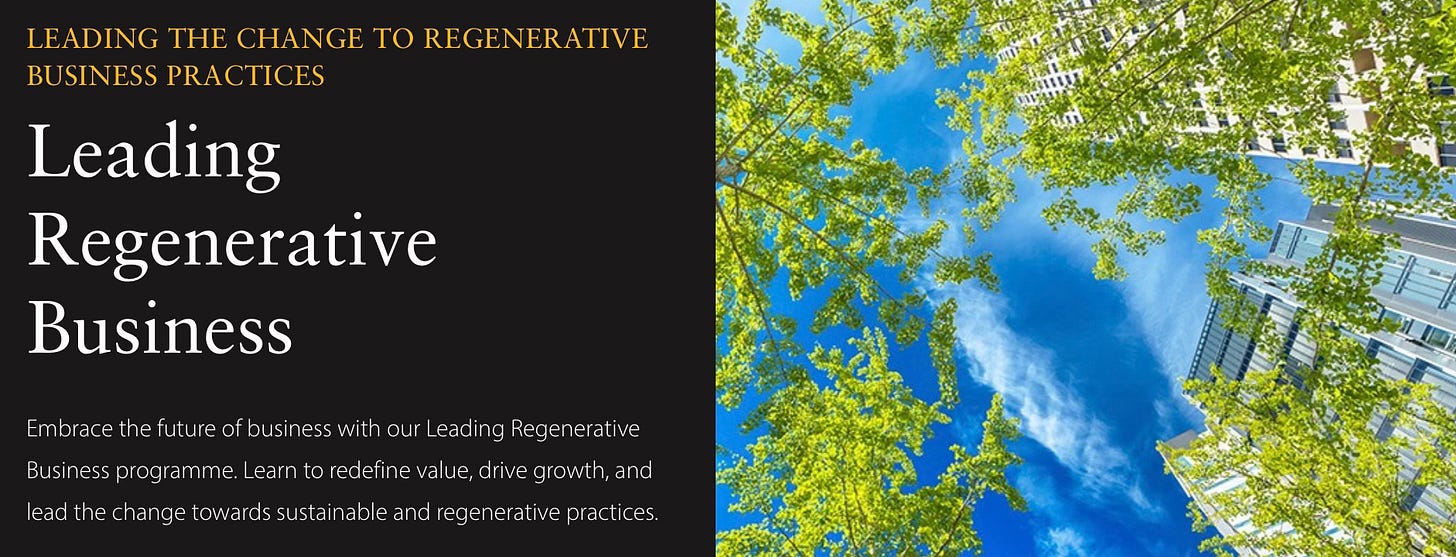Transparency is one factor reshaping sustainability, driving innovation across industries to meet rising demands for ethical practices. In this edition, we spotlight how some organizations are advancing openness and responsibility in their environmental and social impact. Our featured article examines Grove Collaborative's "Beyond Plastic™" initiative, setting a new benchmark for consumer goods transparency by highlighting product plastic content. This strategy underscores the growing demand for informed, environmentally conscious decision-making.
In the Essential Reads, diverse stories showcase sustainability progress—from Ghana’s maritime ambitions to work on GHG emissions in Japan and Calibre Mining's leadership in ethical gold practices, there are many organizations revealing a global shift toward sustainable trade and agriculture. Additionally, innovative approaches like AI-driven supply chain traceability and 3D-printed pharmaceutical solutions demonstrate how technology fuels transparency and accountability.
Our Research Corner explores the phenomenon of greenwashing. Published in Organization Science, this study unravels how external pressures influence corporate disclosure practices, offering actionable insights to mitigate deceptive environmental claims.
Let’s delve into these stories, celebrating transparency as a cornerstone of sustainable transformation. Read on to uncover actionable ideas for your journey toward sustainability.
Announcing a new 3 day executive education program on Leading Regenerative Business at the Cambridge Judge Business School led by Christopher Marquis, click below for more information or feel free to email him directly with any questions!
Featured Article:
Grove’s Step Beyond Plastic
In my recent Forbes article, I delve into how Grove Collaborative, a certified B Corporation and the world’s first plastic-neutral retailer, is redefining sustainability in the consumer goods industry. Grove’s innovative “Beyond Plastic™” badging system is designed to empower consumers to make informed choices by transparently highlighting the plastic impact of their products. With badges like “100% Plastic Free,” “95%+ Plastic Free,” and “No Single Use Plastic,” Grove is addressing growing consumer demand for sustainability and tackling the alarming global plastic crisis.
Grove’s efforts are part of a broader mission to shift the industry away from reliance on single-use plastics through product innovation and radical transparency. In my interview with CEO Jeff Yurcisin, he emphasized Grove’s commitment to progress over perfection and shared how the company evaluates brands against stringent standards, from cruelty-free practices to sustainable packaging. This new initiative aims to transform shopping into an educational experience, aligning consumer values with environmental action.
Essential Reads:
Reducing GHG Emissions in Japan
Environmental experts at a Makati forum highlighted Japan's leadership in greenhouse gas (GHG) reduction, including corporate-level reporting mandates and cross-border low-carbon technology projects. The project is also open to neighboring countries and the report discussions how the Philippines is taking efforts in energy efficiency and eco-friendly transport, emphasizing significant mitigation costs in energy and transport sectors.
Read more: Less Greenhouse Gas Emissions Sought
Transforming Ghana's Maritime Industry
Ghana's maritime sector is pivotal to its economy, handling 85% of trade volume. Transitioning to a 24-hour economy could boost trade, create jobs, and position Ghana as a West African hub. Inspired by global examples like Singapore, success hinges on modern infrastructure, policy reforms, and skilled workforce development.
Read more: Transforming the Maritime Industry
Principled Gold Mining
Calibre Mining achieved four consecutive years of compliance with the World Gold Council's Responsible Gold Mining Principles (RGMP), showcasing excellence in sustainability, ethical practices, and transparency. The company also advanced toward the Conflict-Free Gold Standard, reinforced by independent verifications, and gained recognition for its ESG performance, elevating industry standards for responsible mining.
Read more: Calibre Mining Demonstrates Gold Standard for Principled Mining
Capsule Innovation and Sustainability
Advancements in cellulose-based capsules and 3D printing are revolutionizing the pharmaceutical industry in 2025, addressing sustainability, personalized therapies, and efficient drug delivery. These technologies enhance API stability, cater to clean-label demands, and enable precise, patient-centric solutions, marking a transformative shift in healthcare.
Sustainable Kratom Practices
Leading kratom (a tropical evergreen tree) brands are adopting sustainable farming, eco-friendly packaging, and ethical sourcing practices to protect rainforests, support local communities, and ensure fair trade. These initiatives include organic farming, reduced carbon emissions, and worker safety measures. Consumers can contribute by choosing reputable, certified brands and supporting community-driven initiatives.
Read more: How Kratom Brands Are Embracing Sustainability and Ethical Sourcing
AI-Driven Responsible Sourcing
United Legwear & Apparel adopts AI-powered traceability to enhance supply chain transparency, compliance, and sustainability. Partnering with TradeBeyond, the company utilizes real-time document verification and custody tracking to meet regulations like the UFLPA and ESG laws, ensuring ethical sourcing and reducing compliance risks.
Read more: United Legwear & Apparel Gets AI Boost for Responsible Sourcing
Research Corner:
The topic of sustainability transparency has also been discussed by me and my co-authors in Organization Science in 2016, investigates the phenomenon of greenwashing by analyzing how firms selectively disclose benign environmental impacts to appear transparent while concealing harmful practices. Using a robust panel dataset of 4,750 public companies across 45 countries, the research reveals that organizations operating in environments with higher scrutiny, stronger institutional norms, and greater civil society engagement are less likely to engage in such deceptive practices. This work offers significant contributions to institutional theory, strategic management, and transparency, providing actionable insights for fostering more honest corporate environmental disclosures.
Read more: Scrutiny, Norms, and Selective Disclosure: A Global Study of Greenwashing
The regenerative business practices and sustainability innovations highlighted in this week's Regenerative Insights directly tackle the critical issues of corporate responsibility explored in my recent book explored in my recent book, The Profiteers: How Business Privatizes Profit and Socializes Cost.
Quick Takeaways:
GHG Efforts: Japan and the Philippines showcase transparent, scalable emission-reduction strategies.
Maritime Shift: Ghana aims for sustainable trade growth with 24-hour port operations and policy reforms.
Gold Mining Transparency: Calibre Mining sets a standard with responsible gold practices and verified ESG performance.
Pharma Sustainability: Eco-friendly capsules and 3D printing enable greener, precise healthcare solutions.
Kratom Ethics: Transparent sourcing practices support sustainability and local communities.
AI for Supply Chains: AI enhances transparency and compliance in ethical sourcing initiatives.






